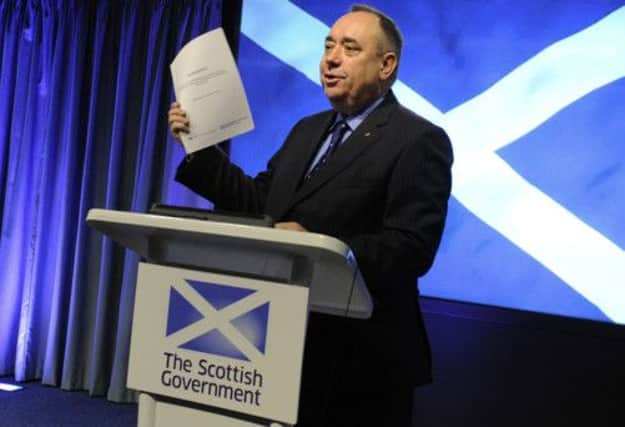Eddie Barnes: Economic climate requires global warming


This appears counter-intuitive at first glance. After all, given the background of a Conservative-led UK government, which people in Scotland did not vote for, inflicting a spending squeeze on services and incomes, the conditions might seem handy for the Scottish Nationalists to exploit. Certainly they’re giving it a good try. But while the political conditions may be in the SNP’s favour, the more important economic state of play isn’t.
That was the argument put forward by thinkers at a Scotsman conference on the economics of the independence case in Edinburgh yesterday. Professor David Bell of Stirling University began his presentation with a few dates. First there was 1979, the year of the first devolution referendum – and the dawn of the North Sea Oil boom. That would have been a good time to become independent he noted, as Scotland could have established an Oil Fund and tucked away cash for rainy days to come. Then there was 2004, he noted – at the height of the Noughties boom. UK debt was down at 40 per cent of GDP and Scotland would have inherited a relatively low level of debt.
Advertisement
Hide AdAdvertisement
Hide AdBut by 2016, Alex Salmond’s planned independence day? By then, Prof Bell suggested, Scotland will be lumbered with a £137.5 billion share of the UK’s ever-increasing debt mountain, which it will have to convince nervy international markets it can service. And while oil will still be coming onshore, the salad days of the 1980s will be long gone. “This isn’t really the best time for those who wish to have independence to have a referendum,” Prof Bell deadpanned.
A similar theme was taken up by another of Scotland’s leading economists, Professor Gavin McCrone, a long-time supporter of an Oil Fund. In principle, he said, it remained a good idea.
But to tuck away whatever oil cash is coming to Scotland for a rainy day right now, when the country is already in deficit, and it would simply necessitate a further reduction in spending and “higher unemployment and more economic problems”.
For the SNP, it seems, the parlous state of the UK economy giveth and taketh away. It gives some excellent point scoring opportunities over the mis-management of the UK economy. But it is also exposing the problems that Scotland would inherit on day one. The euro-crisis has further added to those doubts.
There are some pro-independence supporters who believe that economic woe helps their case, exposing the weakness of the status quo. But allies say that Alex Salmond is not among them.
It’s easy to see why; if people are even to contemplate a journey to independence next year, the weather outside needs to improve – and fast.